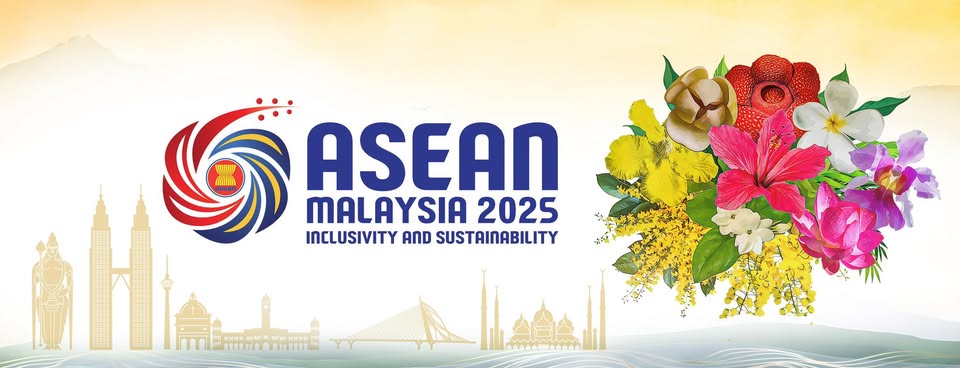
By Dr Mohd Safar Hasim
As ASEAN prepares for its 47th Summit in October 2025, hosted by Malaysia, regional attention is turning to Timor-Leste—a resilient young democracy on the cusp of becoming ASEAN’s 11th member.
While no formal date has been announced for the accession ceremony, diplomatic signals suggest that Timor-Leste’s long-awaited entry is imminent. This moment marks not just an expansion of ASEAN’s geographic footprint, but a reaffirmation of its founding ethos: unity in diversity, peaceful coexistence, and inclusive development.
A Journey Forged in Struggle
Timor-Leste’s path to sovereignty is among the most arduous in Southeast Asia. Colonised by Portugal for over four centuries, the territory declared its independence in 1975, only to face immediate regional turbulence. Indonesia, concerned about ideological instability and regional fragmentation, intervened and administered the territory for nearly 24 years.
The episode remains a sensitive chapter in regional history, but today, Indonesia stands among Timor-Leste’s strongest supporters for ASEAN membership—a testament to Southeast Asia’s evolving diplomacy.
Following a UN-sponsored referendum in 1999 and a period of international peacekeeping, Timor-Leste emerged as a sovereign state in 2002. Since then, it has built democratic institutions, held peaceful elections, and cultivated a foreign policy rooted in multilateralism and regional cooperation.
ASEAN Aspirations and the Three Pillars
Timor-Leste formally applied for ASEAN membership in 2011. Its candidacy is guided by the ASEAN Charter, which requires alignment across three foundational pillars:
1. Political-Security Community (APSC)
Timor-Leste has ratified key ASEAN treaties and actively participates in regional dialogues. Its commitment to peace, non-interference, and democratic governance aligns well with ASEAN’s political norms.
2. Economic Community (AEC)
This pillar presents the steepest challenge. Timor-Leste’s economy remains heavily reliant on petroleum revenues, with limited diversification. However, the government has launched an interministerial taskforce to accelerate accession to ASEAN’s trade and investment frameworks, including the ASEAN Trade in Goods Agreement (ATIGA) and the Comprehensive Investment Agreement (ACIA).
3. Socio-Cultural Community (ASCC)
Timor-Leste has made notable strides in education, health, and civic engagement. ASEAN documents have been translated into Tetum and Portuguese, and youth mobility programmes are expanding. As the only Lusophone country in Southeast Asia, Timor-Leste adds to ASEAN’s rich cultural mosaic.
A Useful Member of a Community of Nations
Timor-Leste’s accession is not merely symbolic. Strategically located near the Ombai-Wetar Strait, it holds maritime significance for regional connectivity and security. Its coffee exports, fisheries, and tourism potential offer economic complementarities. More importantly, Timor-Leste brings a principled voice to ASEAN—one shaped by its experience in peacebuilding, post-conflict reconstruction, and democratic resilience.
As ASEAN grapples with internal divisions and external pressures, Timor-Leste’s entry could reinvigorate the bloc’s commitment to inclusive diplomacy and civic development. Its leaders, including President José Ramos-Horta and Prime Minister Xanana Gusmão, have consistently framed ASEAN membership as a gateway to shared prosperity and regional solidarity.
Malaysia’s Role and Regional Implications
Malaysia has played a pivotal role in shepherding Timor-Leste’s accession. As current ASEAN Chair, Malaysia has prioritised institutional onboarding, capacity-building, and diplomatic consensus.
Prime Minister Datuk Seri Anwar Ibrahim’s administration has emphasized ASEAN’s responsibility to uplift smaller and post-conflict states, echoing Malaysia’s own history of regional leadership.
For Malaysia, Timor-Leste’s entry offers multiple dividends:
* Diplomatic credibility: Reinforces Malaysia’s image as a bridge-builder and advocate for inclusive regionalism.
* Economic opportunity: Opens new avenues for trade, investment, and technical cooperation, especially in agriculture, education, and governance.
* Civic engagement: Strengthens Malaysia’s role in shaping ASEAN’s socio-cultural agenda, including language diversity, youth mobility, and democratic capacity.
Moreover, Timor-Leste’s accession could catalyse renewed interest in regional frameworks like ZOPFAN (Zone of Peace, Freedom and Neutrality), which Malaysia has long championed. It also offers a chance to reframe ASEAN’s identity—not just as a trade bloc, but as a community of nations committed to mutual upliftment.
Looking Ahead
If formalised in October 2025, Timor-Leste’s accession will be ASEAN’s first expansion in over two decades. It will also set the stage for Timor-Leste to assume the ASEAN Chairmanship in 2029, based on the alphabetical rotation. That prospect underscores the bloc’s evolving inclusivity and the promise of a new generation of leadership.
In welcoming Timor-Leste, ASEAN is not just adding a member—it is embracing a story of resilience, dignity, and hope. And for Malaysia, it is a moment to reaffirm its role as a steward of regional unity and a champion of Southeast Asia’s shared future.
Dr Mohd Safar Hasim is a Council Member of the Malaysian Press Institute (MPI)
WE